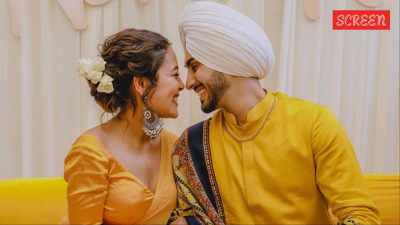Will he fall just short?
Yes, I am going to vote, but I don8217;t know if the vote is going to be counted.8217;8217; These words sounded bizarre, coming as they d...

Yes, I am going to vote, but I don8217;t know if the vote is going to be counted.8217;8217; These words sounded bizarre, coming as they did from someone in the world8217;s most powerful democracy. We have got used to hearing them in the badlands of Bihar. But to hear it in Tallahassee, the capital of Florida, it came as a shock. The speaker was a taxidriver, a Black, and he was only voicing fears which were harboured by not a few, many of them belonging to the minority community. In the two weeks that I spent in the US between September 13-29, I was taken aback by the extent to which people8217;s confidence in the electoral process had been shaken by the events of 2000, when voting errors, the infamous 8216;8216;butterfly ballots8217;8217;, the controversies over the 8216;8216;hanging chads8217;8217; had disenfrachised thousands of voters in Florida, leading to legal wrangles and, many believe, snatching of the presidency from Al Gore.
Despite the explosion of concern, the large number of election reform groups which have come into existence in the last four years and the correctives that have been put in place, people continue to view things with scepticism, whether it is the electronic machines or voter registration or preparations for absentee balloting or the offer of provisional ballots. They are expecting something to go wrong somewhere, which might put the White House in doubt again. I was in the US as part of a 20-member pre-election international team to 8216;8216;monitor US elections8217;8217;, which was an unusual invitation because the Americans have normally gone to other countries to monitor elections, not the other way around. The invitation was from a California-based NGO, Global Exchange, and the idea was 8216;8216;to restore public confidence in the electoral process8217;8217;. After four days in Washington for briefings, we split up into five teams going to five of the battleground states8212;Arizona, Florida, Georgia, Missouri, and Ohio.
Coming from India, it was simply amazing for me to find the widespread distrust of the electronic voting machines in a country which prides itself as a technological giant. After the 2000 fiasco and the enactment of the Help America Vote Act HAVA in 2002, there was a move to give the states money to upgrade technology. However, very few states opted for them. The initial enthusiasm for them8212;they are a boon for the disabled and those who do not speak English8212;gave way to doubts that these 8216;8216;touch-screen8217;8217; machines may be deliberately programmed to steal an election. The CEO of one of the companies in Ohio which is providing the machines did not help matters when, in a fundraising letter, he promised to deliver the state to President Bush. Some states decided to go back to the old system of punchcards. Only 15 out of 67 counties in Florida are using them.
In India, we were perhaps too trusting of the one million electronic machines that were used in the entire country in the May elections, though there were a few warning voices. In the US there is a demand that the machines should not be used unless there is the safeguard of a 8216;8216;paper trail8217;8217; a parallel paper record to facilitate a recount. The Indian machines, according to the Election Commission, keep a paper record of voting, but this can only be shown to the courts if required in the event of a recount. One reason why the machines did not come in for greater scrutiny here is because of the enormous credibility the Election Commission enjoys. In the US, the conduct of elections is carried out not by a central election commission but by the election supervisors at the county level, and laws and procedures differ not just from state to state but also from county to county. The expression of doubt about the machines in the US seems to be more a lack of confidence in some of the people in charge of the machinery than in the working of the machines per se.
What has deepened the apprehensions is the fact that the November 2 election between George W Bush and John Kerry promises to be a close battle in a highly polarised country. Last time the margin of error was bigger than the margin of victory for the first time in the history of the US. Bush finally won Florida by only 537 votes, and because of these few hundred votes, all its 25 electoral college votes went to him in 8216;8216;the winner take all8217;8217; system, giving him the presidency, even though rival Gore had won half a million more votes than Bush. Though people are questioning the very fundamentals of the system today, they know only too well that even a few hundred votes could be crucial in the battleground states like Florida. The ghost of 2000 continues to haunt the 2004 poll.
What also comes home to you when you are in the US at election time is the assertiveness of our Dalits about their political rights. Like the SCs here, the Blacks in America form around 15 per cent of the country8217;s population, but they do not seem to be able to compel the political parties to take their concerns on board in quite the same way as the Dalits have managed to do here. The African-Americans in the US do not have someone like Mayawati today, and they have tended to be indifferent towards voting. Of course there is a history of suppression and the American Constitution was not against slavery, and voting has been viewed as a privilege and not a right in an affirmative way.
The Republicans concede, for instance, that a Democratic candidate cannot win the state of Florida unless there is a high voter turnout of Blacks, who normally support the Democrats. The Republicans realise that they have to restrain the Blacks from turning out to vote. That is why the felons8217; voting rights has become a big issue in Florida, both in 2000 as also in 2004. The felons have an unusually high proportion of Blacks. Unlike India, where the prisoners have voting rights and many of our politicians have stood for elections from prison, the convicts in the US do not have voting rights. But even ex-felons cannot vote in six states, and Florida is one of them, unless the right is restored to them, and this is left to the discretion of the governor. In 2000, thousands of legitimate citizens got disenfranchised as felons, and the same thing would have happened this year but for the media exposing the list, which had to be abandoned.
There is a striking similarity between the US election 2004 and the Indian election of 1999. Like the BJP, which is rooted in the religious right, the right-wing Christians form the bedrock of Bush8217;s support, and Americans are more religious than any other Western population. Bush has played on the security fears, the nationalistic sentiment following 911 and Iraq, just as the BJP played on the Indian psyche after the Kargil War, and people were not willing to see shades, only black and white. And now the release of the Osama video on the eve of elections will only go to reinforce those fears. Though Kerry had almost caught up with Bush, and there is a body of opinion that is unhappy with Bush8217;s handling of the Iraq war, they are not necessarily confident about Kerry8217;s ability to get them out of a situation which is becoming messier by the day.
8216;8216;America 2004 looks like India 1999,8217;8217; said an American academic, 8216;8216;but it would be interesting to see if it can turn out to be like India 2004, springing a surprise in the elections which nobody expected.8217;8217;
- 01
- 02
- 03
- 04
- 05































